Memories and Renewal: Montreal’s Chinatown hosts lecture by 2023 grad and Prof. Esponda
By Maria Cook
December 11, 2023
Lecture: Memories and Renewal: Equitable Development for Montreal’s Chinatown
Date: Thursday, December 14, 2 p.m. to 4 p.m.
Venue: Chinatown House, 1088 Rue Clark (Second Floor), Montreal, QC
Speakers: Associate Professor Mariana Esponda and Melissa Lengies, MArch
More: https://jiafoundationmtl.org/chinatownhouse/
Free and open to the public
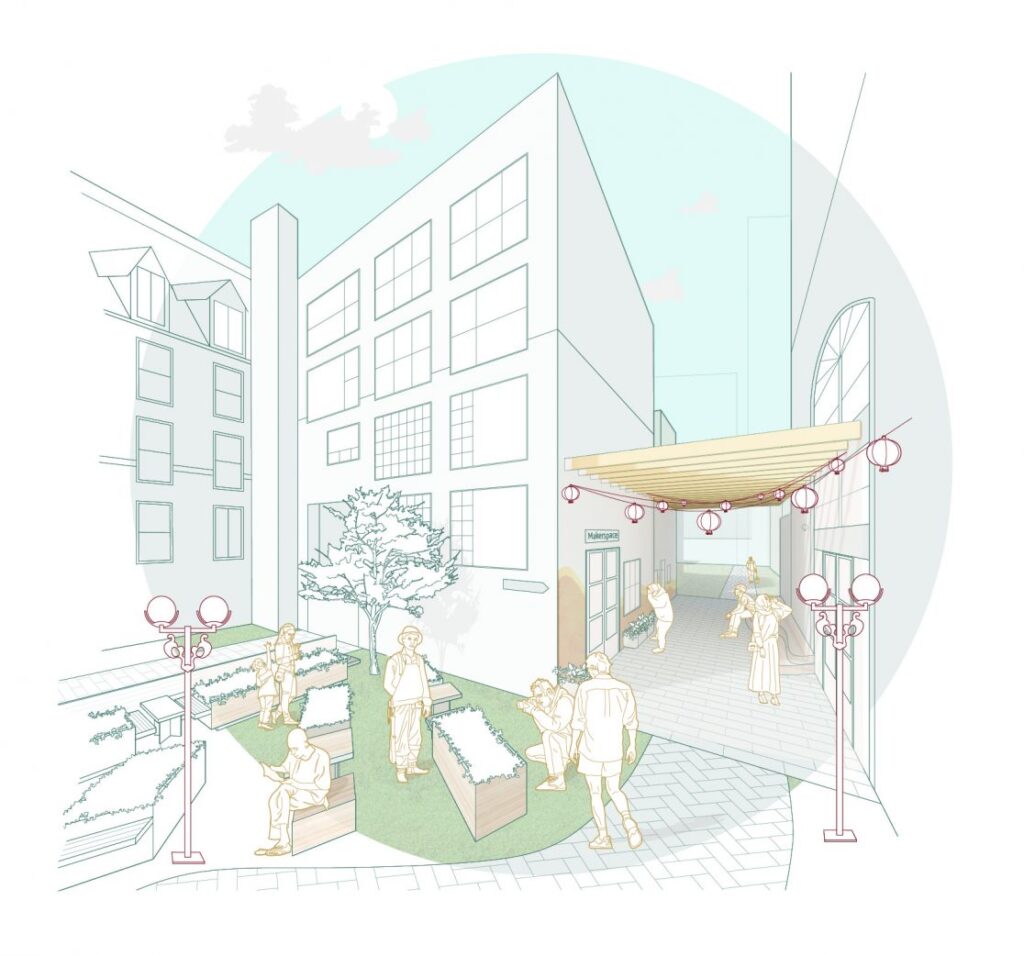
Melissa Lengies worked with members of the Montreal’s Chinatown community for her Master of Architecture thesis, which includes a design for the adaptive re-use of a group of buildings in the historic neighbourhood.
“Like many Chinatowns in Canada, Montreal’s Chinatown has been negatively impacted by suburbanization, urban renewal, and speculation,” she writes. “While many buildings now sit vacant and in disrepair, new and out-of-character developments encroach upon Chinatown’s boundaries. The process of gentrification threatens not only the displacement of long-term residents and businesses, but the loss of valuable social networks and cultural representation as well.”
Lengies’ thesis explored a contemporary approach to development, one which is sustainable and socially equitable. “Buildings are intricately tied with memory, history, and representation in addition to their function and carbon value,” she observes.
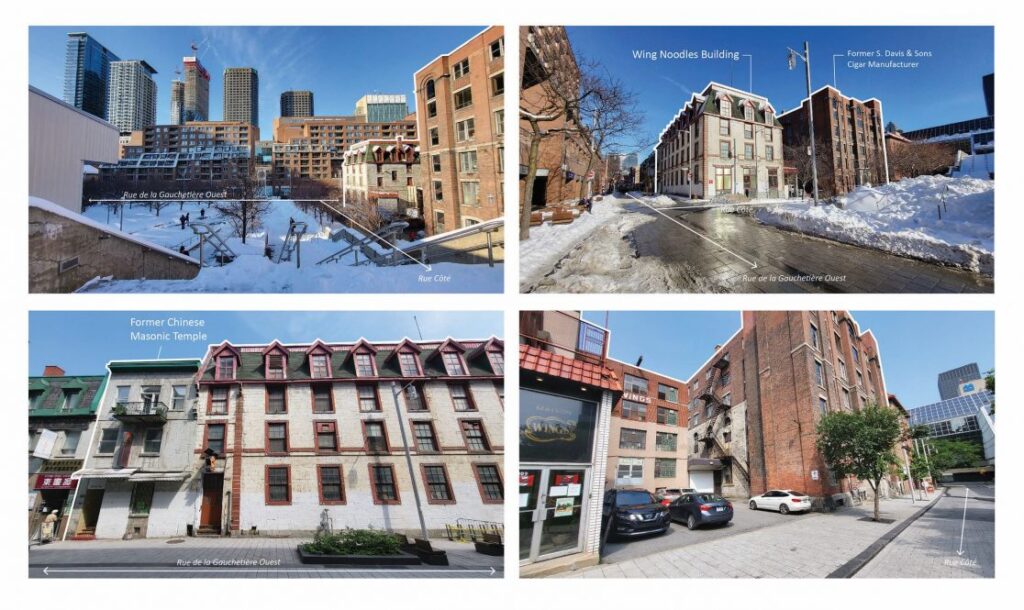
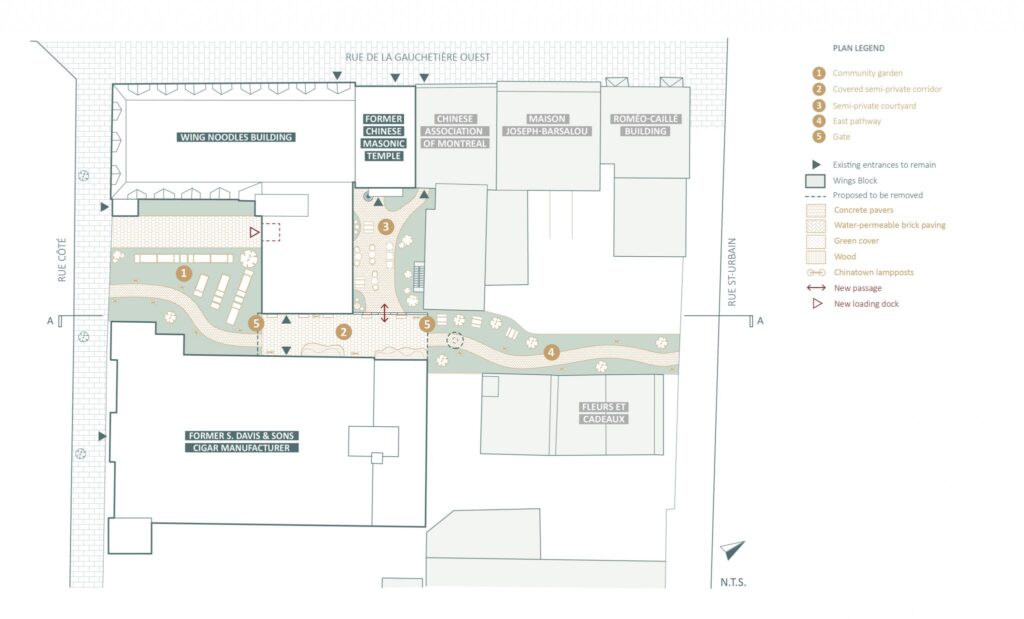
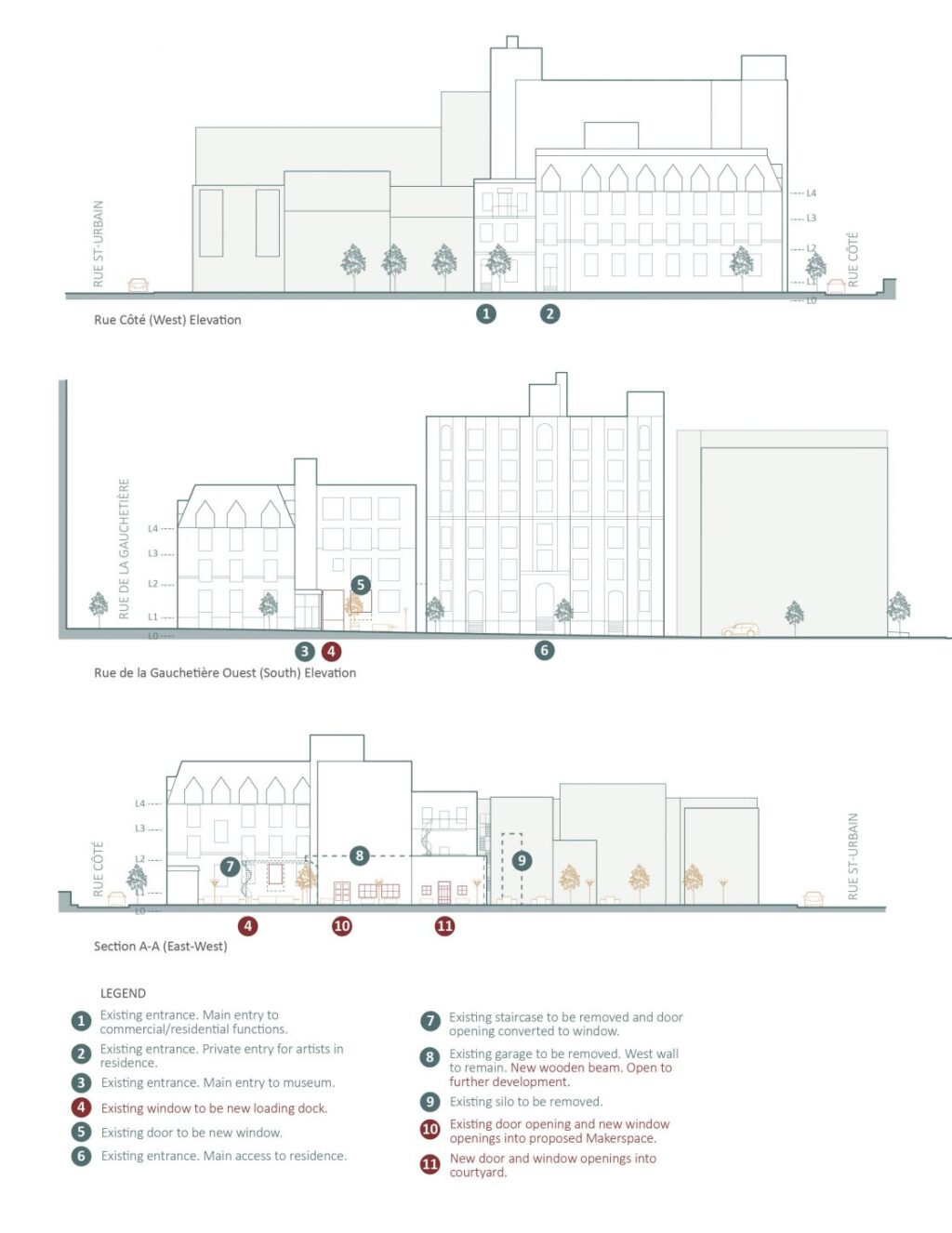
Together with Associate Professor Mariana Esponda, her thesis supervisor, Lengies will give a presentation based on her thesis on Thursday December 14, from 2 p.m. to 4 p.m. It takes place at Chinatown House, 1088 Rue Clark (Second Floor) in Montreal, and includes a one-hour community workshop and discussion. All are invited.
“The talk is for anyone interested in equitable development, adaptive reuse, and the future of Chinatown,” says Lengies, now working as an intern architect in the Montreal office of Architecture49 on their heritage team.
The lecture is intended to spark practical discussions about what the community wants to do in response to pressure from developers, she says. “They are actively searching for ways to reuse these buildings right now and communicate why they are important to conserve and retain within the community.”
In the presentation, Lengies will address such issues as:
- what equitable development looks like when considering the critical cultural and social layers of Chinatown.
- the benefits and barriers to prioritizing a conservation-based approach to development (i.e. building re-use in a traditionally low -income and marginalized ethnic community)
- the challenges associated with development without displacement.
“There are so many reasons to conserve Montreal’s Chinatown,” says Lengies. “One of the big reasons for me is to reinforce ties across generations and peoples.”
The lecture is sponsored by the JIA Foundation, a non-profit organization working to preserve the cultural heritage of Montreal’s Chinatown. Lengies was inspired by the work of JIA Foundation member, filmmaker Karen Cho, and her documentary, Big Fight in Little Chinatown.
Members of the foundation provided essential guidance to Lengies during her research, including the choice of buildings: The Wing Noodles Building, at 1009 Rue Coté, together with two adjacent buildings: the former S. Davis & Sons cigar manufacturers and the former Chinese Masonic Temple.
It is a case study with potential to benefit conservation, community support, and neighbourhood revitalization, says Lengies. “It is a prime example of a main street typology with underutilized historic buildings in addition to deeply embedded culture and social layers and is urgently in need of a more equitable development framework in the face of gentrification.”
With family roots in Montreal’s Chinatown, Lengies was particularly eager to learn more about the historic and cultural significance of these buildings.
“This thesis was thus also driven by my personal calling to explore my own roots, a part of which meant to learn about my grandparents’ story, their involvement with Montreal’s Chinatown community and, in turn, the impact it had on their own adjustment to life in Canada.”
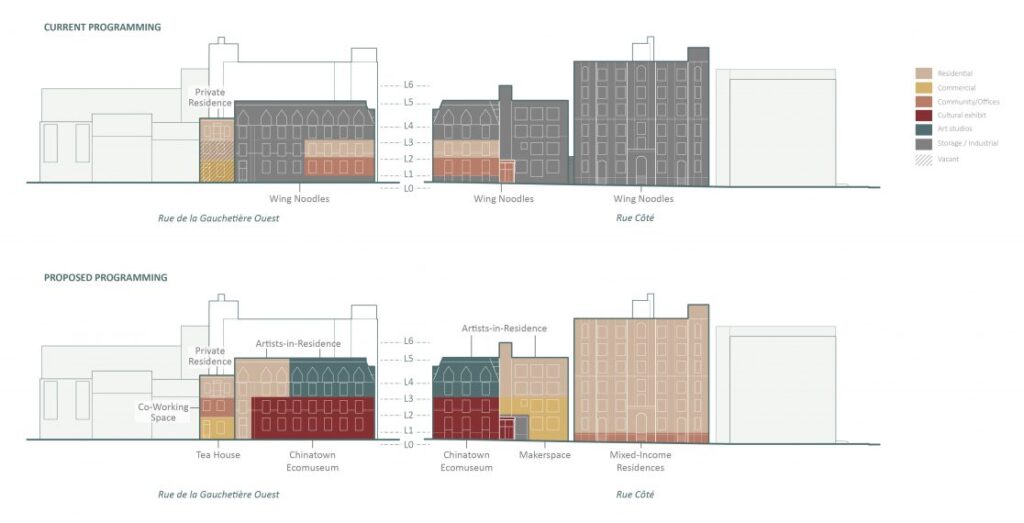
Lengies graduated with a Bachelor of Architectural Studies in 2018 and completed her Master of Architecture in 2023, both at Carleton University’s Azrieli School of Architecture & Urbanism.
Her thesis is called Memory + Renewal: Equitable Development through the Reuse of Historic Buildings in Montreal’s Chinatown. Professor Mario Santana was the co-advisor, with Esponda.
Parallel research via a SSHRC Partnership Grant on Quality in Canada’s Built Environment: Roadmaps to Equity, Social Value and Sustainability, supported the thesis.
Carleton University is one of 14 universities in Canada participating in the project. Esponda heads the research cluster at the Azrieli School of Architecture & Urbanism. Lengies was the lead research assistant.
“Our research cluster seeks to determine the potential benefits and barriers of building reuse, assessing how to achieve quality design and avoiding the waste of vast amounts of materials and embodied energy,” says Esponda.
“Chinatowns as an ethnic enclave for new Chinese immigrants were very important settlements in almost every major city across Canada, so we should understand their current challenges and values to preserve the cultural identity,” she says.